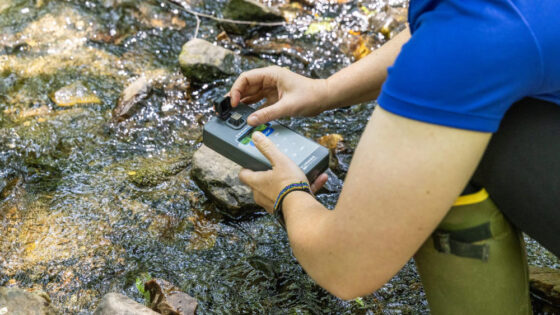In areas with snowy and icy winter weather, salt is necessary for safe driving and walking. “But we have to decide how much is too much, and what price we are paying for that,” says Stroud Water Research Center entomologist, David Funk. Funk has been working with Stroud Center Senior Scientist, John Jackson, Ph.D., to study the effects of increased salt levels on aquatic insects, particularly mayflies. Jackson believes there is cause for concern. As stated in a recent Scientific American article,
“According to Jackson’s latest research, as the salt level approaches about a tenth that of seawater, which is not unheard of in some streams, at least three of four species tested are likely to die. He thinks some of the insects’ physiological mechanisms fail. The larvae of dozens of mayfly species populate healthy streams all year long and provide food for many animals, including fish. ‘Beyond that,’ Jackson says, ‘they are the canary in the coal mine, warning us that other insects may also be at risk.’”
Read the full article, “Fresh Water Is Getting Saltier, Threatening People and Wildlife.” The article also ran on the PBS NewsHour website.
Learn More
- Temperature affects acute mayfly responses to elevated salinity: implications for toxicity of road de-icing salts. Jackson, J.K., and D.H. Funk. 2018. Philosophical Transactions of the Royal Society B: Biological Sciences 374(1764). Open-access PDF available
- Stroud Science on NPR: Road Salt Boosts Safety But Threatens Fresh Water
- EnviroDIY Sensors Track Road Salt Levels in Streams
- Salty Roads, Salty Rivers (one-minute podcast)
- Freshwater Sources Less “Fresh” from Greater Salt Use, Scientists Say


